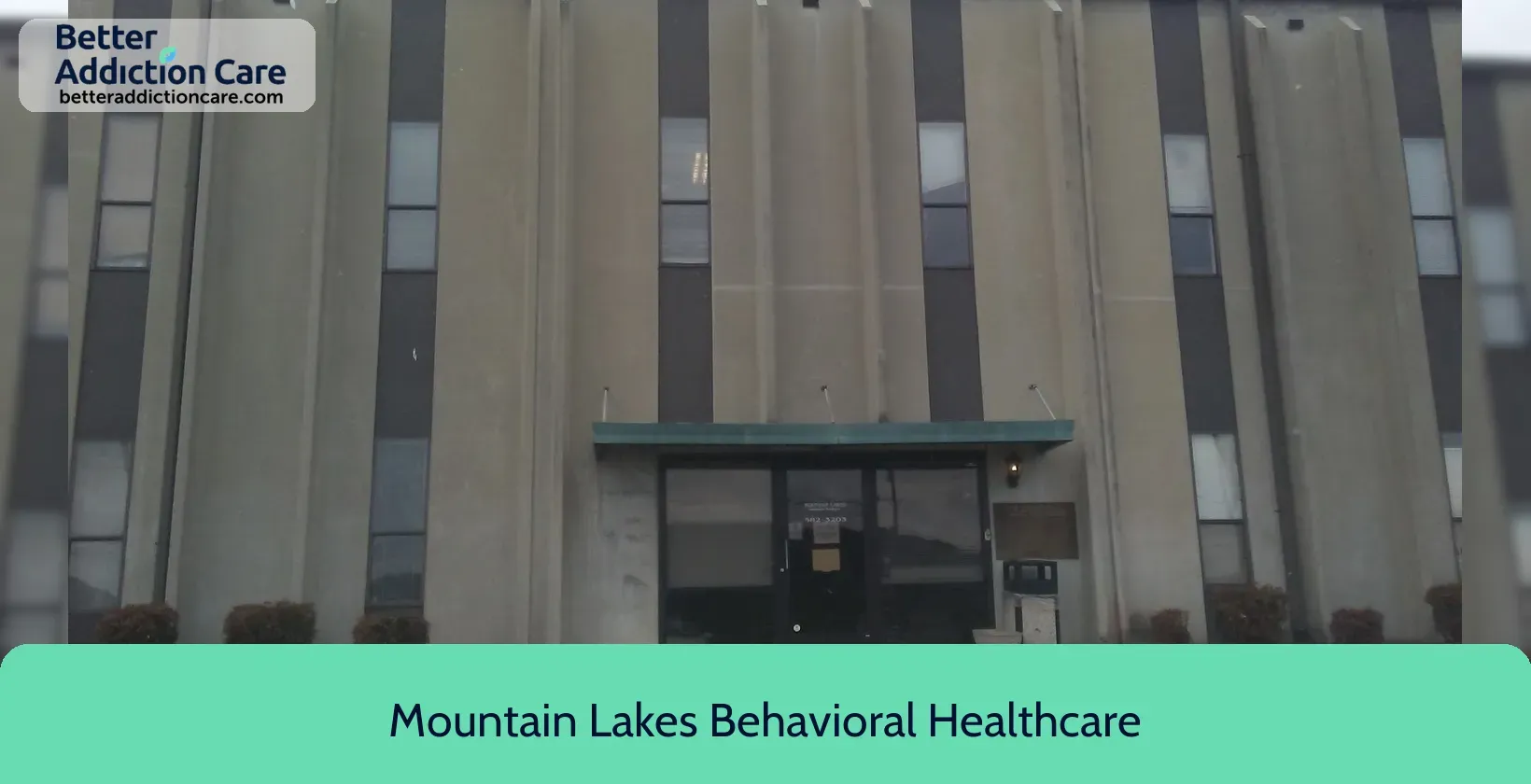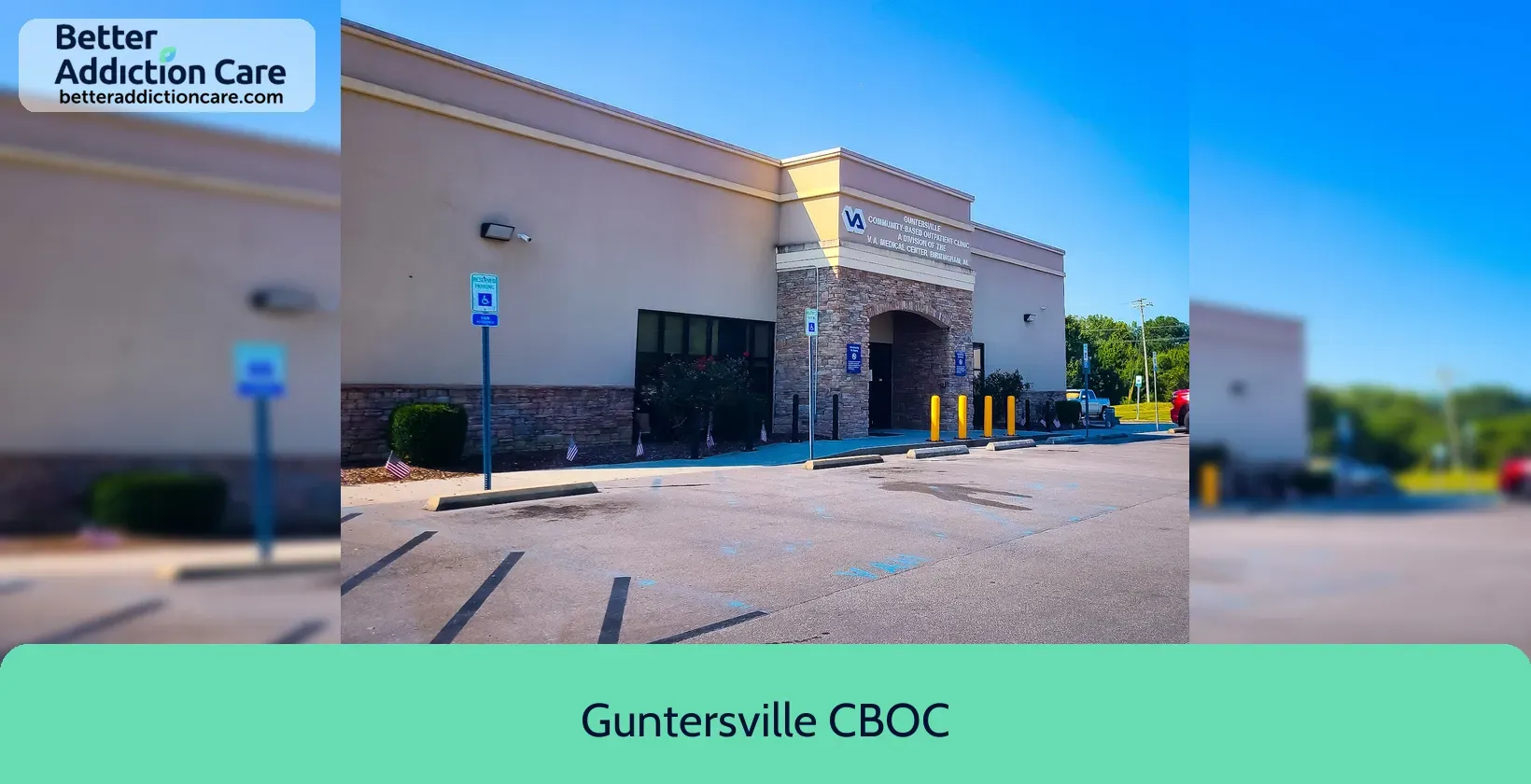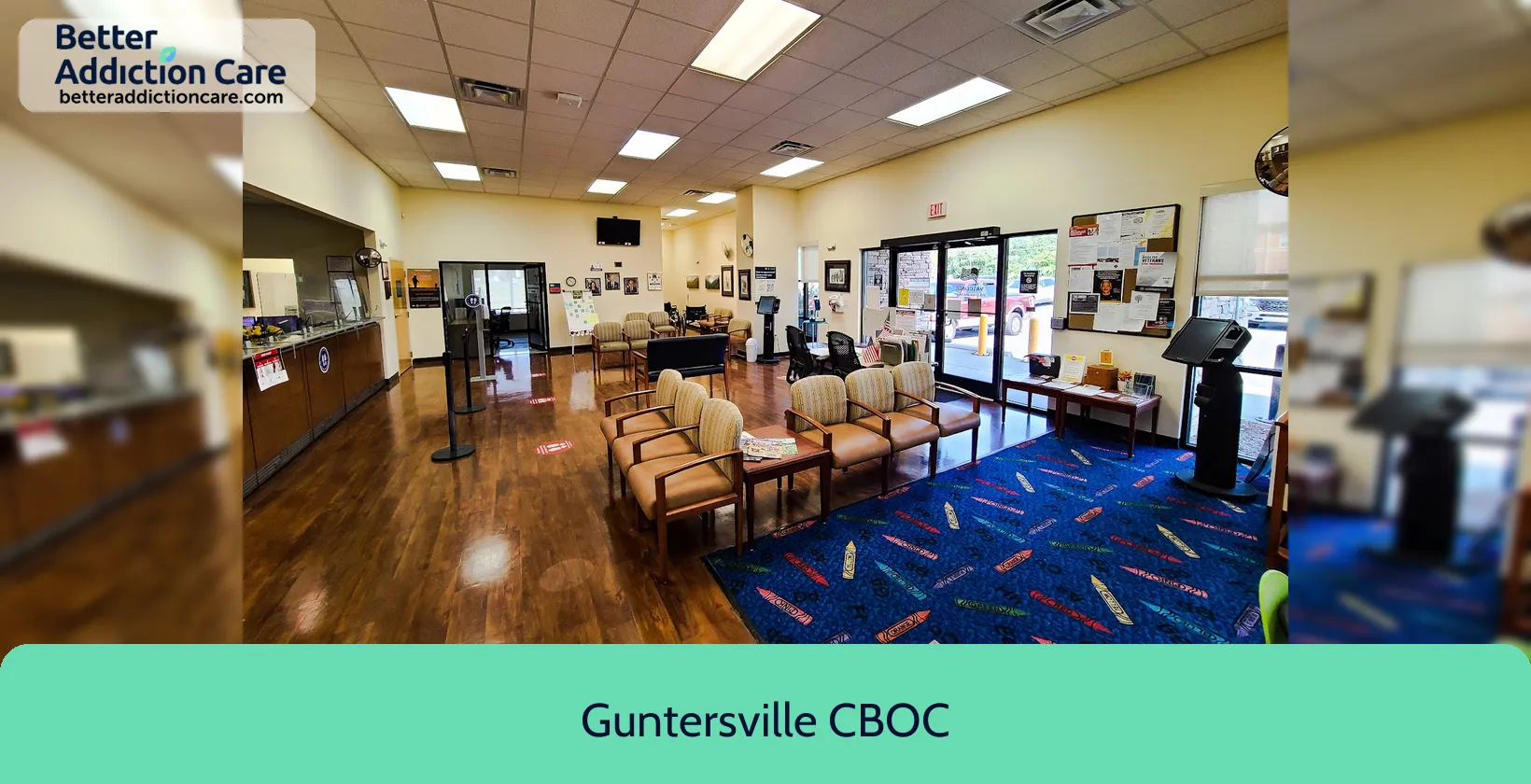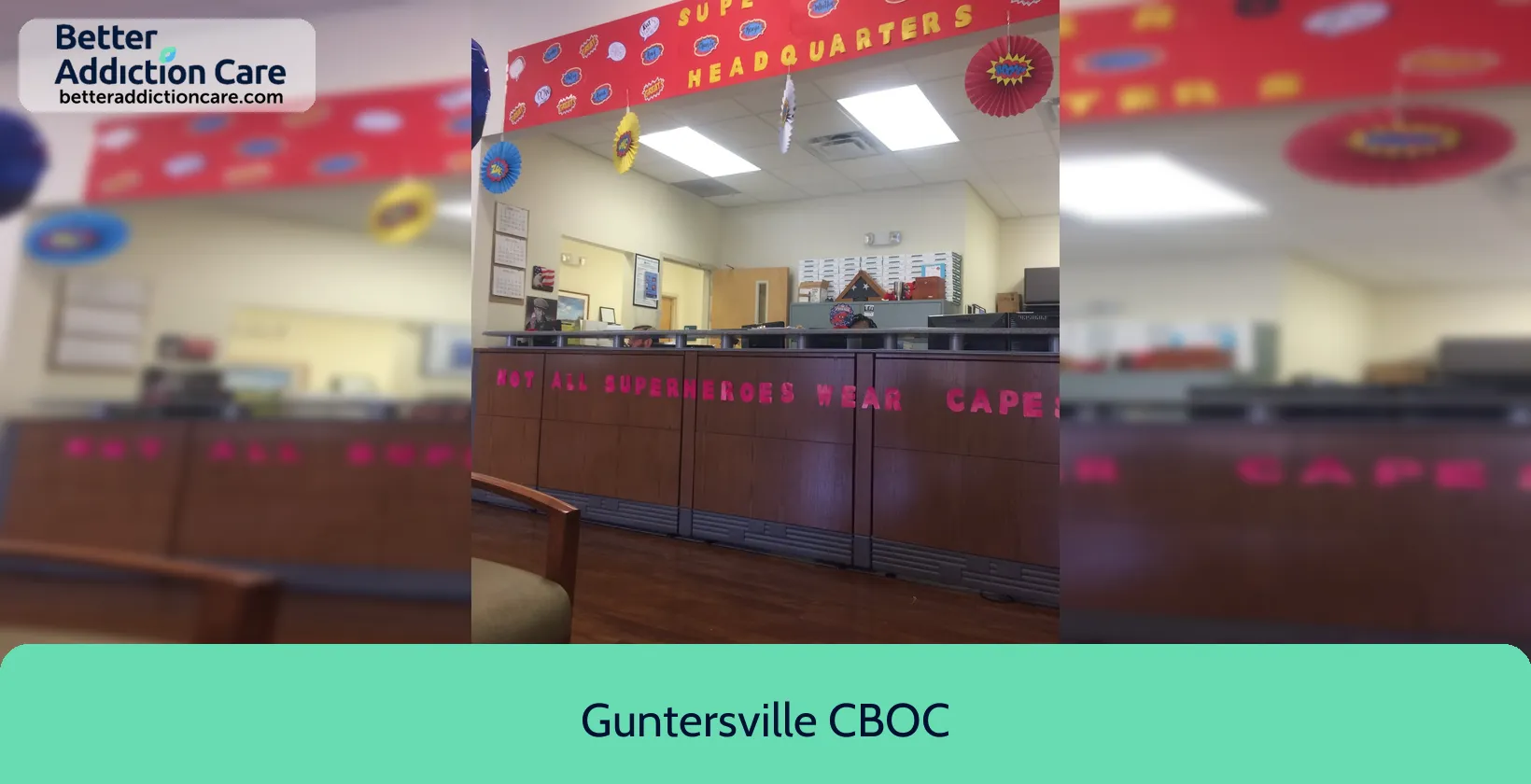Guntersville CBOC
Overview
Guntersville CBOC is a mental health treatment center for people seeking treatment near Marshall County. As part of their treatment modalities for recovery, Guntersville CBOC provides family counseling, individual psychotherapy, and dialectical behavior therapy during treatment. Guntersville CBOC is located in Guntersville, Alabama, accepting cash or self-payment for treatment.
Guntersville CBOC at a Glance
Payment Options
- Cash or self-payment
- State-financed health insurance plan other than Medicaid
- Federal military insurance (e.g., TRICARE)
- Private health insurance
- Medicare
Assessments
- Comprehensive mental health assessment
- Comprehensive substance use assessment
- Screening for tobacco use
Age Groups
- Adults
- Young adults
- Seniors
Ancillary Services
- Case management service
- Diet and exercise counseling
- Family psychoeducation
- Suicide prevention services
- Supported employment
Highlights About Guntersville CBOC
7.19/10
With an overall rating of 7.19/10, this facility has following balanced range of services. Alcohol Rehabilitation: 8.40/10, Drug Rehab and Detox: 6.00/10, Insurance and Payments: 6.67/10, Treatment Options: 7.70/10.-
Alcohol Rehabilitation 8.40
-
Treatment Options 7.70
-
Insurance and Payments 6.67
-
Drug Rehab and Detox 6.00
Accreditations
The Joint Commission:

The Joint Commission accreditation signifies that a facility has met rigorous standards of excellence in patient care, treatment, and safety. It assures individuals and healthcare professionals that the accredited facility provides high-quality, evidence-based care for addiction and mental health issues, fostering trust and confidence in their services.
Commission on Accreditation of Rehabilitation Facilities (CARF):

Established in 1966, the non-profit organization known as the Commission on Accreditation of Rehabilitation Facilities (CARF) has a dedicated focus on accrediting rehabilitation organizations. CARF's primary mission is to assist service providers, particularly rehabilitation facilities, in upholding and promoting the highest standards of care.
SAMHSA certification for opioid treatment program (OTP):
Accreditation by the Substance Abuse and Mental Health Services Administration (SAMHSA) for Opioid Treatment Programs (OTPs) signifies that a program has met strict standards for providing high-quality care to individuals with opioid use disorders. It assures patients, families, and communities that the OTP follows evidence-based practices, employs qualified staff and maintains a safe and effective treatment environment. This accreditation reflects the program's commitment to addressing the opioid epidemic and promoting recovery.
Treatment At Guntersville CBOC
Treatment Conditions
- Mental health treatment
- Substance use treatment
- Co-occurring Disorders
- Alcoholism
Care Levels
- Aftercare
- Outpatient
Treatment Modalities
- Family counseling
- Individual psychotherapy
- Dialectical Behavior Therapy
- Eating Disorder Treatment
- Nicotine replacement
Ancillary Services
Languages
- Sign language services for the deaf and hard of hearing
Special Programs
- Clients with HIV or AIDS
- Active duty military
- Persons with eating disorders
- Clients who have experienced trauma
- Persons with post-traumatic stress disorder (PTSD)
Get Help Now
Common Questions About Guntersville CBOC
Contact Information
Other Facilities in Guntersville

6.68

7.03

6.85

6.99
Browse rehab centers near Guntersville and in other cities across Alabama
DISCLAIMER: The facility name, logo and brand are the property and registered trademarks of Cedar Lodge - A Program of MLBHC, and are being used for identification and informational purposes only. Use of these names, logos and brands shall not imply endorsement. BetterAddictionCare.com is not affiliated with or sponsored by Cedar Lodge - A Program of MLBHC.



